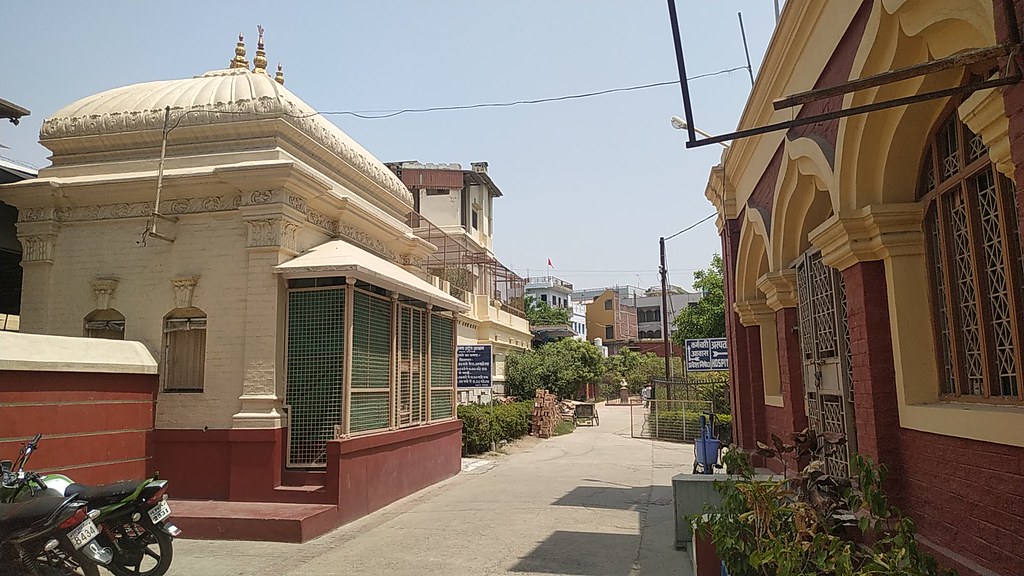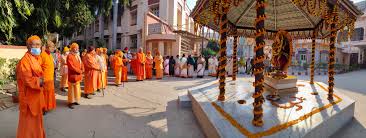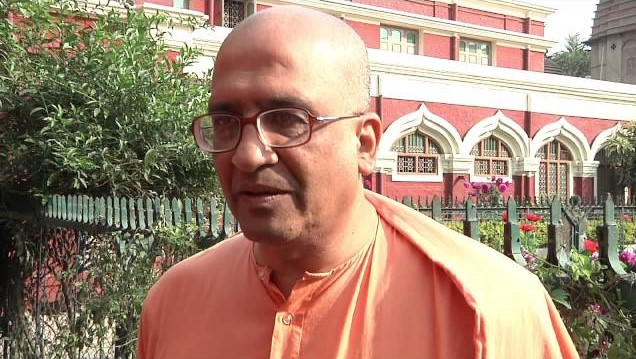The nobility of the medical profession

Covid-19 has tested people in medical profession worldwide as well as health workers in a way that has never ever happened before. Not only the doctors, the nurses, entire hospital system, scientists and whole humanity as such has faced a challenge of the century with every one in every walk of life has had to face enormous pressures, work wise and economy wise. While everyone in the medical profession has had to work long hours to help save lives, people who have fallen ill having contracted this deadly virus which has by now taken close to six million lives in the past two years. 2022 has its own challenge as the new variant Omicron is spreading fast yet the relief is that most of us are vaccinated though many still succumbing to it as hospital ICU’s are packed with struggling patients. So do their carers dressed in heavy PEPs looking after the serious cases. When will there be respite from it all, no one knows as we all pray that Covid-19 calms down and life starts on a new note with hope for us all.
Here is an article by Swami Brahmeshananda, a monk and a doctor himself of the Ramakrishna Math on the nobility of medical profession that he penned in his book ‘Health, Medicine and Religion’.
Swami Brahmeshnanda writes:
Of the various professions, I consider three as the noblest: the medical, the teachers and of a spiritual instructor, guide, guru or monk. for, these three make the three gifts: of health or arogya dana, of learning or vidya dana, and of spiritual knowledge or jnana dana. Traditionally these three gifts were made free, and were called dana (donation), and the giver was given in exchange whatever the receiver considered suitable as dakshina. And even till a few decades ago , this noble custom had continued in India. It is only recently that due to the impact of western civilization and commercialization of all aspects of life that these have been converted into bread-winning professions.
The health care professionals are the most fortunate and the most privileged class of people in the society. For, they got an opportunity to learn and practice the most prodigious, most responsible and the noblest of profession. The nobility of the medical profession in any form, as doctors, technicians, nursing staff cannot be over-emphasized. Unfortunately, not many appreciate its nobility. They realize that it is a very lucrative profession and they can gain name, fame and prestige by it. It opens up a number of opportunities for worldly success but not many realize that the medical profession also opens wide the door for higher pursuits, higher than merely name and fame.
While engaged in their professional activities, being busy with the technical and academic pursuits of their professional science, the doctors and para-medical people are at times apt to lose sight of the ethical, human, psychological and spiritual aspects of their profession. This is all the more true in modern times which can be termed as a period of technicalization, specialization and commercialization. These developments have seriously hampered the doctor-patient relationship, which, only a few decades ago was very healthy and fulfilling. Today, medical profession has come under the purview of the ‘Consumer Protection Act’. Indeed, medical activity has now become a business, a contract made and executed on financial basis, rather than an act of worship, as Swami Vivekananda had envisaged.
Some of the medical personnel may not be inclined to bring in God into their profession. For them, indeed for all, let me quote a passage from the Introductions of the First Edition of the Harrison’s ‘Text Book of Medicine‘ which emphasizes the glory and dignity of the medical profession in a forceful manner.
“No greater opportunity, obligation or responsibility can fall to the lot of a human being than to become a physician or a doctor. In the care of the sick he/she needs technical skill, scientific knowledge and human understanding. He/she who uses these with wisdom, with courage and with humility will render a unique service to his/her fellow beings and would build within oneself, and enduring edifice of character. A physician must seek his/her destiny no more than these. They must be content with no less.”
To state plainly, the aims and goals of the medical profession are only two: service and building one’s character; not money, name or fame, prestige or position. these will come, says Swami Vivekananda, “In the world take always the position of the giver. Give everything and look for no return. Give love, give help, give service, give any little thing you can, but keep out the barter. Make no conditions, and none will be imposed. Let us give out of our own bounty, just as God gives to us.”
Unfortunately in our short-sightedness, we forget this, unselfishness is more paying but people don’t have the patience to practice it. Medical profession provides the greatest opportunity. Why does not a monk, for example, get greater opportunity for service and character building? No. the medical profession has much greater opportunity. A doctor or a nurse can serve the patients as God. By considering the patients as God, they are able to convert their work into the highest spiritual practice – a means of liberation or moksha. It is conductive to all the four purusharthas (four ultimate goals in Hinduism): dharma (duty), artha (objective or wealth), kama (desire) and moksha (salvation).
Apart from service to one’s fellow beings, another aim on which medical professional must have his eye on is: character. Swami Vivekananda says, “Money does not pay, nor do name or fame pay, or even learning. It is the love that pays; it is character that cleaves through the adamantine walls of difficulties.” As the saying goes: ‘If you are planning for a year, sow a crop. If you are planning for 10 or 25 years, plant a tree. But if you are planning for a hundred years, build character.’
The word used above in the first line in the quotation: responsibility. No greater responsibility could fall to humanity than what is expected in these difficult times. Yes, today the responsibility of the medical professionals is the greatest. It goes on increasing as they become senior, as they mature. They have a responsibility towards their families, the society, the nation in the larger sense and towards their juniors, students, colleagues and patients. Above all they have the greatest responsibility towards the profession, and towards the prestigious and noble institutions they have graduated and gotten trained in.
Medical professionals have also got the greatest obligation, again: To Serve, that is. They are responsible to the society, to the nation by their deeds and professional behaviour. There was a time when doctor was worshipped. Today, he is seen with suspicion. The younger generation has no role models. They see the unethical doctors flourishing. The ethical degradation of the profession is appalling. It is the responsibility of the doctors that by their noble ethical conduct they re-establish its image in the minds of the public and set an equally noble example before the younger generation.
In modern times there has occurred a steady commercialization of the medical profession. An ethically decadent society cannot last long. It is the responsibility of each person to keep up the high ethical standards.The role of medical professionals in the society is two fold: Taking care of society’s physical health and second, taking care of its ethical health.
Technical Skill and Scientific Knowledge:
In the care of the sick the medical persons need these two: technical as well as scientific skill. Some may learn technical skill but may lack theoretical knowledge. This can be dangerous. This is quackery. Both are needed. Mere theoretical knowledge also is not enough. Medical institutions teach both theoretical as well as technical or a hands on practical knowledge. All these must be made use of as well as the professional must continue to learn as they go which is very important for experience and professional development. This they do by pursuing refresher courses to refresh one’s knowledge as medicine in today’s world is progressing at a fast pace.
Human Understanding:
Another skill which is important is human understanding. This is something one learns as one practices and the knowledge which is already there. A doctor must have understanding of all the dimensions of the patient’s personality. One person falling ill disturbs not only him, but his immediate family, his work, and many more units of which he or she is a part. A doctor must understand the complexity of a patient, his relationship with his near and dear ones, and all the deeper dimensions of his/her life. The first edition of Oxford Textbook of Medicine titled ‘Medicine in an Unjust World’ by M.H. King who has also written a book on how to develop a clinical laboratory in a developing country with minimal financial resources. Medical fraternity need to learn socio-economics of medicine, a wider vision and strategies of medical planning. Do we want more super-specialties for few rich people or do we want basic primary health care for the larger population. Dr. King puts out these questions and it was thought fit to include his article in the beginning of so important a text book of medicine. Human understanding of basic medical care to every individual is important , not just the privileged in the society, it is every person’s right to get proper medical care hence helping enhance their right to healthy life.
Wisdom and Courage:
Wisdom means the ability to discriminate between right and wrong, what is beneficial, what is moral and what is immoral. If we use the knowledge and skill for selfish purposes, for exploiting the patient who comes to us in a helpless condition, if we use them unethically, we are not using wisdom, we are definitely not being wise. This, unfortunately has become the modern trend. With all the scientific knowledge, we have not been able to build a peaceful humanitarian society. Rather, we have built up an exploitative society. It is paramount duty of the medical professionals not to misuse in anyway their skill and knowledge. It is for medicine professional to take bold decisions and bold action, wise decision and act accordingly, with a cool and collected mind, carefully looking at the pros and cons of a particular action, thus helping in due course the power of judgement to decide best in helping a patient recover from his or her illness.
Humility:
A conscientious medical professional is bound to gradually become humble. No other profession than the medical profession shows us greater miracles of God. There are cases which doctors consider from medical point of view, hopeless, with no chance of recovery, but they survive. And many scores that the doctors thought are doing well, suddenly deteriorate. A conscientious doctor with faith in God cannot but realize that he is merely an instrument in the hands of a far greater power who is moving him like a puppet.
Let the doctors therefore humble themselves so that they may become fit instruments in the hands of God. Let them begin their professional day with a prayer to God that He make them his fit instruments.
Medical Profession, a worship:


The medical profession can also be practiced in the spirit of worship to God. Swami Vivekananda while establishing Rama Krishna Mission gave it a motto: ‘Shiv Jnane Jiva Seva‘. He showed how to do it. He said: ‘Not only you look upon your father as God, look upon your mother as God, but also look upon the poor, the illiterate, the ignorant, the afflicted, let these be your God’.
At the Ramkrishna Mission’s 230 bedded hospital at Varanasi the monks serve the patients considering as gods. The hospital itself is the temple. The hospital kitchen where patient’s food is prepared is called ‘Narayan Bhandar’ – that is the Kitchen of the Lord. At around 10 O’clock food is served to the Rogi-Narayan (patient gods), and the same food is served to the monks at around 12 O’clock. That means, the food, having been served to Narayana, has now become sacrament, the prasad, which the monks, the worshippers, partake with reverence. Here at the hospital we sponge the patient with medicated lotion, we dress the wounds and apply ointment, impart words of consolation and encouragement to the patient-god. The operation theatre here can be compared to the puja mandapam; the anesthetist and many assistants are like assistants in a worship with operation carried out with great solemnity.
This is the spirit with which monks serve and are still serving patients at the Ramakrishna Mission’s medical institution. For the medical service is neither a profession nor even a service, but a spiritual practice, sadhana, comparable to meditation which will lead them to God or Moksha. Every doctor can and must sublimate his medical activity into spiritual act. what is required is a change in one’s attitude – that the patient they serve is the veritable embodiment of God.
Short URL: https://indiandownunder.com.au/?p=17359
